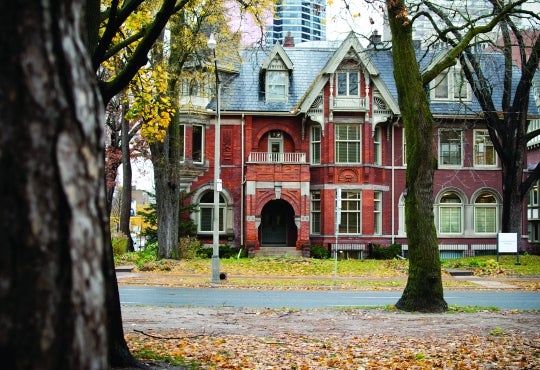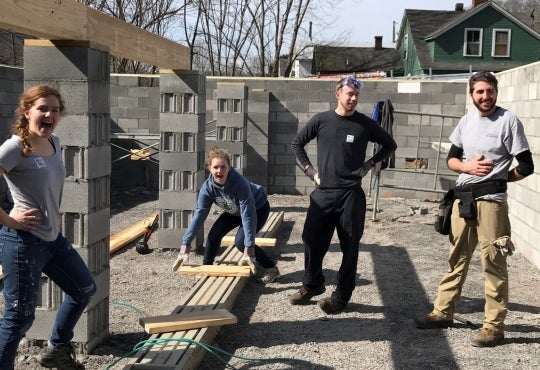The word “community” is so beloved and common at Grebel that we joke about our overuse of the “C word”. What do we mean when we use our favorite word?
We mean relationships. We mean hospitality, acceptance, openness, honesty, affirmation, encouragement, respect, and mutual support.
There are many life-giving relationships at Grebel—roommates, Student Council leaders, companions on service trips, musicians in ensembles, classmates studying for exams together, athletes supporting teammates, Chapel leaders planning worship, staff serving meals, faculty exploring ideas, and administrators making decisions.
Grebel is not the only place where this happens. Most relationships and most experiences of community happen in institutions—schools, churches, camps, hospitals, government, businesses, research labs, social service agencies, orchestras, fitness clubs, or sports teams.
During Reading Week two groups of Grebel students participated in service-learning experiences. One group explored poverty and homelessness in Toronto through TOOLS (Toronto Ontario Opportunities for Learning and Service), a Mennonite Central Committee Ontario project. The other group was in Greenbrier, West Virginia, volunteering with Mennonite Disaster Service, rebuilding homes damaged or destroyed by floods. Both of these life-transforming experiences were possible for Grebel students because institutions provided the opportunity for volunteers to serve, learn, build relationships, and become a community.
I was in Lithuania in March to celebrate the 25th anniversary of LCC International University. When that University was founded, the Soviet Union was collapsing. Lithuania had recently achieved political independence, but there were few institutions to replace the monolithic Communist government.
The University was one of the first few independent institutions in Lithuania. It introduced new values and fostered new relationships. Students, faculty, and staff still often eat meals together, cooperate on service projects, and participate in the governance of the University. Today the University has 600 students from thirty countries. Many of the countries are fractured by internal and external conflicts, but on campus, students from those countries are a reconciled and welcoming community.
Every year at Grebel we benefit from the institutions in which our students developed their character, competence, and dreams. High schools, summer camps, church youth groups, and clubs have been communities that inspired, affirmed, and cared for them. When they arrive at Grebel it is our turn to be an institution that is also a community.
I have been fortunate. I have worked in Mennonite post-secondary educational institutions for nearly forty years. Each institution, including Grebel, became a community for me. At each school there was a strong commitment to a common mission and to our shared responsibility for that mission. There were many supportive relationships, high standards of mutual accountability, and abundant affirmation.
I am confident that the “C word” will continue to thrive at Grebel, and hope that it flourishes in all of the institutions in which we express our vocation, nurture relationships, and serve the world.







